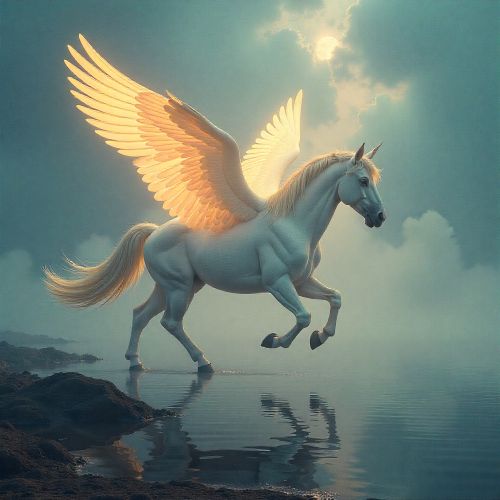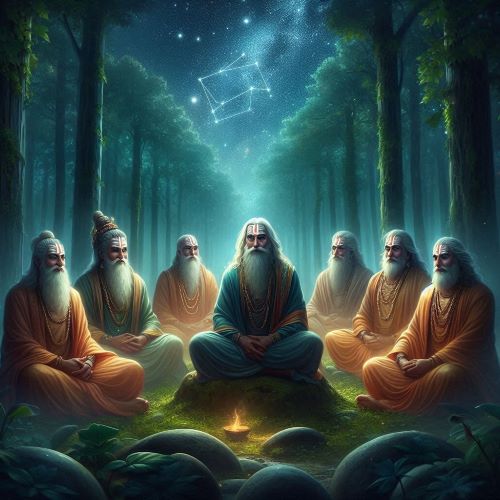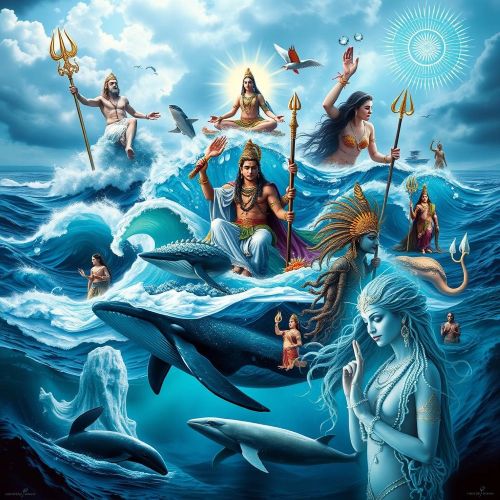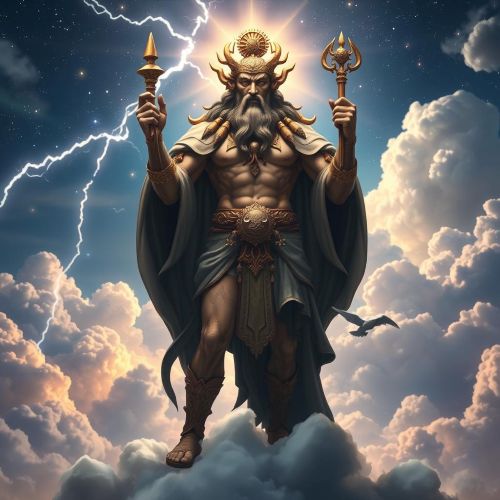Rahu and Ketu in Vedic Mythology: The Story of the Shadow Planets
In the vast ocean of Indian mythology and astrology, few celestial entities are as enigmatic and feared as Rahu and Ketu. Known as the shadow planets, they do not exist in the physical sense like Mars, Venus, or Jupiter, yet their influence in Vedic astrology is profound and inescapable. Steeped in mythological tales and symbolic significance, Rahu and Ketu represent the karmic forces that shape destiny, spirituality, and transformation.
Origins in Hindu Mythology
The story of Rahu and Ketu originates in the epic Samudra Manthan, or the Churning of the Ocean of Milk, described in Hindu scriptures. The devas (gods) and asuras (demons) churned the ocean in search of amrita, the nectar of immortality. Lord Vishnu, disguised as the enchanting Mohini, distributed the nectar among the gods. However, a clever asura named Swarbhanu disguised himself as a deva and sat in line to receive the nectar.
As soon as the nectar touched his lips, the Sun (Surya) and the Moon (Chandra) recognized him and alerted Vishnu. In response, Vishnu hurled his Sudarshana Chakra, severing Swarbhanu’s head. But since he had already consumed the nectar, death could not claim him. His head became Rahu, and his body became Ketu, destined to roam the heavens forever. This myth explains why Rahu and Ketu are considered immortal shadow planets with immense power.
Rahu: The Head of Desire
Rahu, the severed head, symbolizes insatiable hunger, obsession, and worldly desire. In astrology, Rahu is often associated with ambition, material gains, illusion, and unconventional paths. It represents the constant longing for more—power, recognition, or pleasure—that can both elevate and destroy a person. Rahu is said to eclipse the Sun and Moon, creating solar and lunar eclipses, which mythologically represent his revenge against them for exposing him during the Samudra Manthan.
Ketu: The Headless Body of Liberation
Ketu, the body without a head, stands in stark contrast to Rahu. While Rahu symbolizes desire, Ketu represents detachment, liberation, and spirituality. It is believed to cut ties with materialistic pursuits, leading individuals toward moksha (spiritual liberation). Ketu is often linked with mystical experiences, past life karma, and deep transformation. Though feared for its influence in astrology, Ketu often brings wisdom through hardship and introspection.
Astrological Significance of Rahu and Ketu
Unlike other planets, Rahu and Ketu are not physical bodies but mathematical points of intersection—where the Moon’s orbit crosses the Sun’s apparent path (the ecliptic). These are known as the lunar nodes. In Vedic astrology, Rahu is the north node and Ketu the south node.
Their positions in a birth chart are said to dictate karmic patterns and life lessons. Rahu indicates what the soul desires to achieve in this lifetime, while Ketu shows what the soul has already mastered in past lives. Together, they form a karmic axis, pushing individuals toward growth through experiences that balance desire and detachment.
Symbolism and Duality
The duality of Rahu and Ketu reflects the eternal struggle between materialism and spirituality, illusion and truth, bondage and liberation. While Rahu drives the soul into the chaos of worldly ambition, Ketu pulls it back toward renunciation and spiritual enlightenment. Their interplay is central to the human journey of balancing worldly duties with inner growth.
Rahu and Ketu in Cultural Context
Beyond astrology, Rahu and Ketu have inspired cultural beliefs and rituals across India. Many still observe rituals during eclipses, such as fasting or avoiding certain activities, rooted in the myth of Rahu swallowing the Sun and Moon. In temples, they are sometimes depicted in serpent form, with Rahu as a serpent head and Ketu as a serpent tail, signifying their role as cosmic forces rather than tangible deities.
Modern-Day Relevance
Even in contemporary times, the mythology of Rahu and Ketu resonates deeply. In astrology, they are often linked with sudden changes, technological advancements, foreign travel, and unconventional thinking. Rahu’s energy is considered disruptive yet innovative, while Ketu inspires spiritual practices like meditation and detachment from material excess.
For many, the lessons of Rahu and Ketu remain timeless—urging us to embrace ambition while remembering the importance of spiritual balance. They remind humanity that life is not just about chasing worldly success but also about transcending illusions to find deeper meaning.
Conclusion
The mythology of Rahu and Ketu is not merely a tale of cosmic deception but a symbolic framework that continues to shape astrology, culture, and spirituality. Their eternal dance across the skies serves as a reminder of the karmic forces that govern existence. By understanding Rahu and Ketu, we gain insight into the balance of desire and detachment, illusion and enlightenment, which lie at the heart of human experience.
No posts were found.









